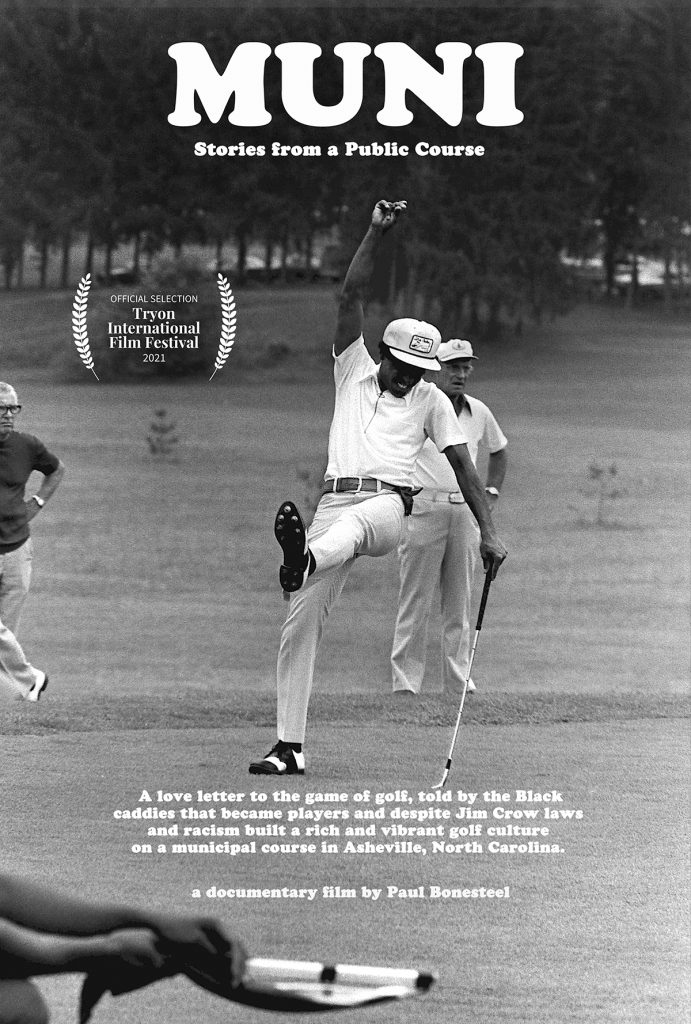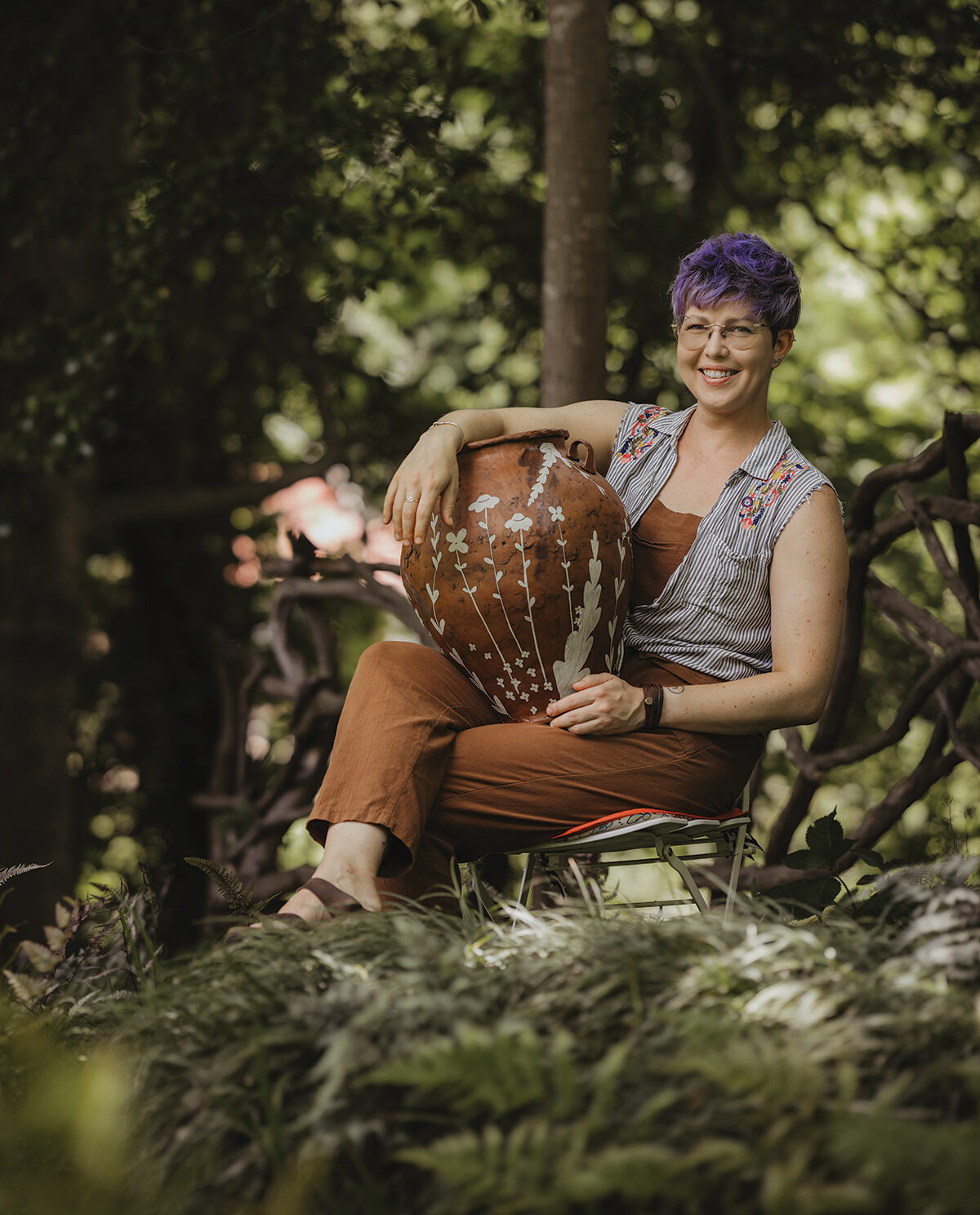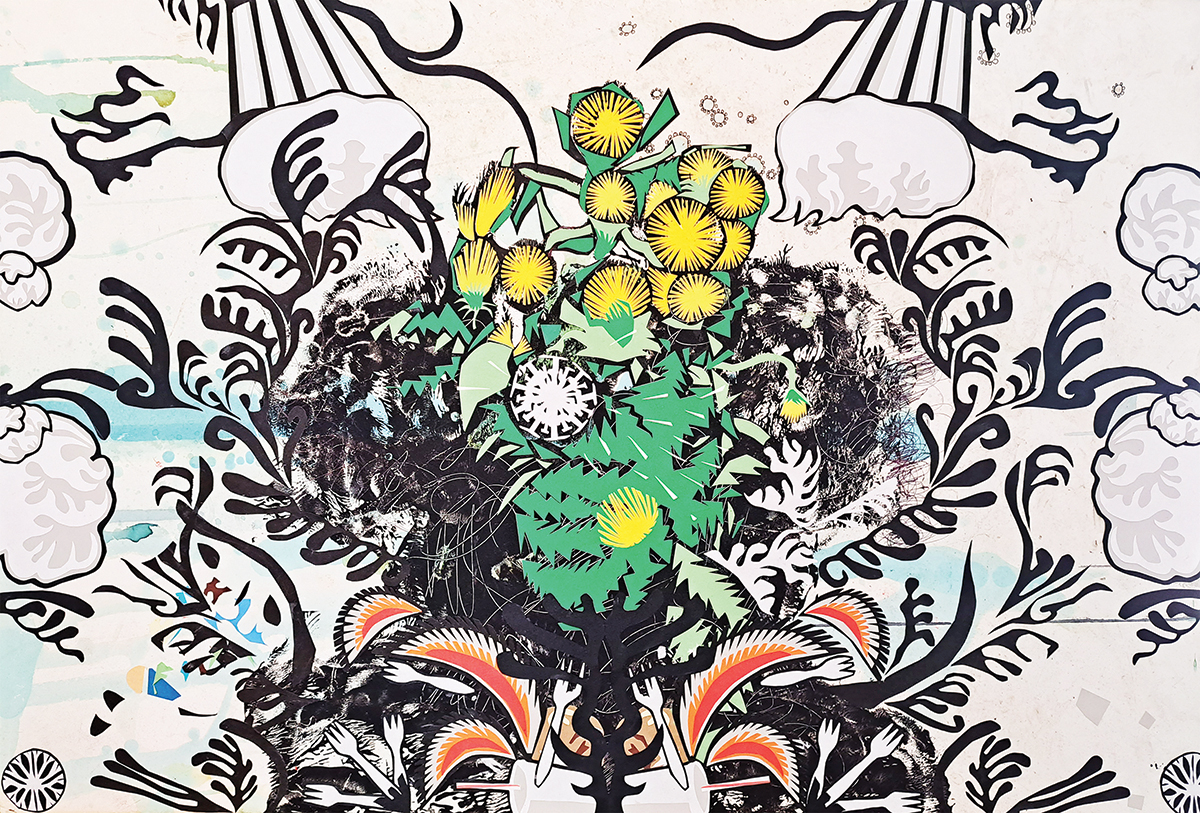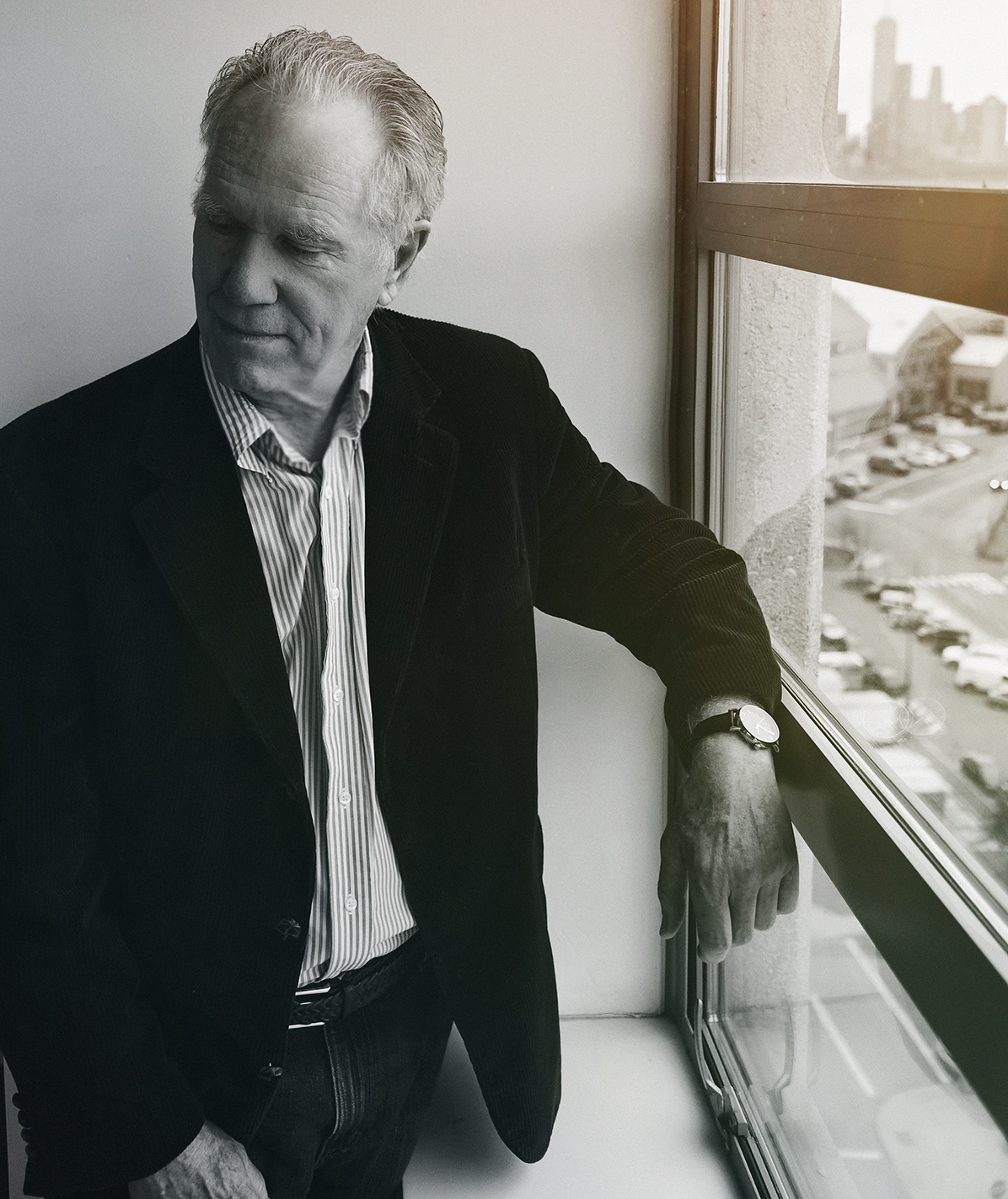Muni documents a rare look at golf in the Jim Crow South

Director Paul Bonesteel grew up playing golf, and when he moved back to Asheville nearly 25 years ago, he went looking for a place to reignite his youthful enthusiasm for the game.
He found East Asheville’s Municipal Golf Course — Muni for short—and immediately recognized that it was a special place.
“People with different backgrounds, race, and class played Muni,” says Bonesteel. “There was so much more participation from Black golfers out there, more than I’d seen anywhere else at the time. The golfers were so beautifully possessive of the course. It was very cool.”
Bonesteel got to know some of the Muni regulars, including Dwight Bryson and Cortez Baxter, who’d spent decades there.
“My relationships at Muni were courteous. That’s how things work on a golf course—polite and friendly to a point—but I had a hunch there was a story there. Sometime around 2010, I started having real, if often cautious and hesitant, conversations with the Black golfers I met about their experiences and the past.”
Bonesteel was soon introduced to Billy Gardenhight, the creator and organizer of the Skyview Golf Tournament. A Muni veteran, Gardenhight had been playing the course since it opened to Black golfers in 1946.
“I started playing Mondays at Muni,” Gardenhight told Leoneda Inge this spring in “Changing the Game,” an episode of her podcast Tested, aired on WUNC 91.5. “They called it Caddies Day. Back then we were not allowed to play any other courses, so there would be 30 or 40 of us out there at a time.”
Muni became a rare haven of camaraderie and competition outside the oppressive racial divides of the Jim Crow South. In 1960, Gardenhight launched the Skyview Golf Tournament, which brought some of the country’s best Black golfers to Asheville.
“It was the biggest thing in Western North Carolina,” Gardenhight said on “Changing the Game.”
Bonesteel started filming his conversations with Gardenhight and other Black golfers in 2016, not quite sure yet that he was making a documentary. He sought out vintage images of the Skyview Tournament in the archives of local media. The numbers of interviews swelled to 23 participants. Bonesteel recognized the critical importance of letting people tell stories that had been minimized for so long. (Many of the golfers are now in their nineties.)
“There was a sense, even before [the murder of] George Floyd and the events of summer 2020, that a reckoning was underway,” says Bonesteel. “So many of the men I spoke to felt that after the early successes of the Civil Rights movement in the 1960s and ’70s, things had gotten better, but were going in the wrong direction. But perhaps the tide was starting to turn again.”
Production wrapped in late 2019. Bonesteel was submitting his film to festivals when COVID-19 hit in early 2020. With premieres canceled and festivals radically altered or postponed, Callaway Golf, a global sports-equipment company, helped bring Muni to the Golf Channel and to YouTube, where it has been viewed by fans all over the world.
Bonesteel has received plenty of critical acclaim, but his favorite review so far came from a mother of a teenage golfer in Florida. She credits the film with giving her son a rare glimpse of a Black history in golf — one that motivates his continued joy at playing as part of a longer legacy.
“That’s the review I keep on my desktop,” says Bonesteel.
Muni will screen Saturday, Oct. 9, 6pm, at the Veh Stage of the Tryon Fine Arts Center (34 Melrose Ave.), as part of the Tryon International Film Festival (Oct. 8-10). For a full roster of films and ticket information, see tryoninternationalfilmfestival.com.



